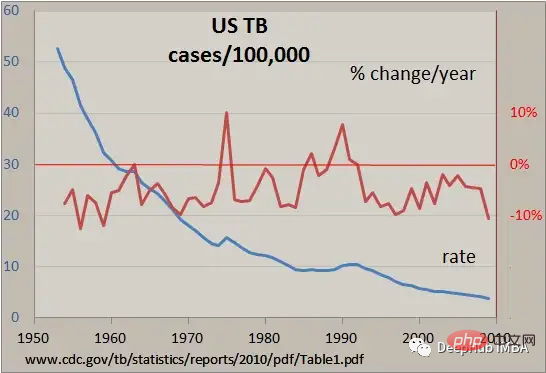
What are the data types?
The definition of a data type in a data structure is the collective name of a set of values with the same properties and a set of operations defined on this set of values.
Variables are where values are stored. They have names and data types. The data type of a variable determines how the bits representing those values are stored in the computer's memory. You can also specify the data type of a variable when declaring it. All variables have a data type to determine what kind of data can be stored.
Data types include primitive types, tuples, record units, algebraic data types, abstract data types, reference types and function types.
Definition
In computers, data is represented by bits (0 or 1). The smallest addressing unit of data is called a byte (usually eight bits). The unit of machine code instruction processing is called the word length. Most instruction interpretations of word lengths are mainly based on binary. For example, a 32-bit word length can represent an unsigned integer value from 0 to 2 to the power of 32 minus 1, or it can represent an unsigned integer value from negative 2 to 32. A signed integer value raised to the power 2 raised to the 32nd power minus 1. Special arithmetic instructions exist that use different interpretations of the bits in the word length as floating point numbers.
The emergence of data types is to divide data into data with different memory sizes. When programming, you need to apply for large memory only when you need to use big data, so that you can make full use of the memory. For example, if a fat person has to sleep in a double bed, give him a double bed, while a thin person can get a single bed.
According to the default regulations, if the data type is not specified in the declaration, the data type of the variable is Variant. The Variant data type is like a chameleon—it can represent different data types in different situations. When you specify a variable as a Variant variable, you do not have to convert between data types; Visual Basic automatically completes the necessary conversions.
However, if you know that a variable always stores data of a specific type, and you declare a variable of that specific type, Visual Basic can handle this data more efficiently. For example, a variable that stores a person's name is best represented as a String data type because names always consist of characters.
In addition to variables, data types are also used in other situations. When assigning a value to a property, the value has a data type; the parameters of the function also have a data type. In fact, in Visual Basic, everything that has to do with data has to do with data types.
The above is the detailed content of What are the data types?. For more information, please follow other related articles on the PHP Chinese website!
 dint是什么数据类型Sep 05, 2022 am 11:05 AM
dint是什么数据类型Sep 05, 2022 am 11:05 AMdint是带符号位的32位整数类型;dint的表示方法及范围是“L#-2147483648~L#+2147483647”,定义为双整数或长整数,字节是电脑里的数据量单位,在计算机中,数据只用0和1这种表现形式。
 Python时间序列数据操作的常用方法总结Apr 24, 2023 pm 10:22 PM
Python时间序列数据操作的常用方法总结Apr 24, 2023 pm 10:22 PM时间序列数据是一种在一段时间内收集的数据类型,它通常用于金融、经济学和气象学等领域,经常通过分析来了解随着时间的推移的趋势和模式Pandas是Python中一个强大且流行的数据操作库,特别适合处理时间序列数据。它提供了一系列工具和函数可以轻松加载、操作和分析时间序列数据。在本文中,我们介绍时间序列数据的索引和切片、重新采样和滚动窗口计算以及其他有用的常见操作,这些都是使用Pandas操作时间序列数据的关键技术。数据类型Python在Python中,没有专门用于表示日期的内置数据类型。一般情况下都
 mysql性别用什么类型Jun 13, 2023 am 11:33 AM
mysql性别用什么类型Jun 13, 2023 am 11:33 AMMySQL性别采用多种数据类型来表示性别字段,例如CHAR、ENUM等,最终采用哪种类型,取决于实际需求以及数据存储的大小和性能。
 java的数据类型有哪些Jan 30, 2024 pm 03:23 PM
java的数据类型有哪些Jan 30, 2024 pm 03:23 PMjava数据类型:1、整型;2、浮点型;3、字符型;4、布尔型;5、其他数据类型;6、引用类型;7、原始类型与封装类;8、自动装箱与拆箱;9、可变参数;10、注解;11、枚举;12、原始类型和引用类型的选择。Java是一种强类型语言,因此每种数据都有其固定类型。
 decimal是什么类型Mar 18, 2021 pm 04:03 PM
decimal是什么类型Mar 18, 2021 pm 04:03 PMdecimal是MySQL中存在的精准数据类型,语法格式“DECIMAL(M,D)”。其中,M是数字的最大数(精度),其范围为“1~65”,默认值是10;D是小数点右侧数字的数目(标度),其范围是“0~30”,但不得超过M。
 MySQL数据类型详解:你需要知道的知识点Jun 15, 2023 am 08:56 AM
MySQL数据类型详解:你需要知道的知识点Jun 15, 2023 am 08:56 AMMySQL是世界上最流行的关系型数据库管理系统之一,因其可靠性、高安全性、高扩展性以及相对低的成本而得到了广泛应用。MySQL的数据类型定义了各种数据类型的存储方式,是MySQL的重要组成部分。本文将详解MySQL的数据类型,以及在实际应用中需要注意的一些知识点。一、MySQL的数据类型分类MySQL的数据类型可以分为以下几类:整数类型:包括TINYINT、
 mysql中银行卡号用什么类型Jun 14, 2023 pm 04:34 PM
mysql中银行卡号用什么类型Jun 14, 2023 pm 04:34 PMmysql中银行卡号用“varchar”字符串类型,因为银行卡的号码较长并且全是数字,为了方便存储,就统一存储为字符串类型。如果用“number”类型,会超出“int”类型的最大值范围,必须用“bigInteger”存储,而它不利于数据的正常转换。
 表中字段的数据类型有哪些Jan 19, 2021 am 10:18 AM
表中字段的数据类型有哪些Jan 19, 2021 am 10:18 AM表中字段的数据类型有:1、二进制类型,包括Binary、Varbinary、Image;2、字符串类型,包括CHAR、VARCHAR、TEXT等;3、Unicode数据类型,包括Nchar,Nvarchar和Ntext;4、日期和时间数据类型,包括DATE、TIME、YEAR等;5、数值数据类型,包括INT、FLOAT、BIGINT等;6、货币数据类型;7、特殊数据类型等等。

Hot AI Tools

Undresser.AI Undress
AI-powered app for creating realistic nude photos

AI Clothes Remover
Online AI tool for removing clothes from photos.

Undress AI Tool
Undress images for free

Clothoff.io
AI clothes remover

AI Hentai Generator
Generate AI Hentai for free.

Hot Article

Hot Tools

SAP NetWeaver Server Adapter for Eclipse
Integrate Eclipse with SAP NetWeaver application server.

PhpStorm Mac version
The latest (2018.2.1) professional PHP integrated development tool

DVWA
Damn Vulnerable Web App (DVWA) is a PHP/MySQL web application that is very vulnerable. Its main goals are to be an aid for security professionals to test their skills and tools in a legal environment, to help web developers better understand the process of securing web applications, and to help teachers/students teach/learn in a classroom environment Web application security. The goal of DVWA is to practice some of the most common web vulnerabilities through a simple and straightforward interface, with varying degrees of difficulty. Please note that this software

SublimeText3 English version
Recommended: Win version, supports code prompts!

ZendStudio 13.5.1 Mac
Powerful PHP integrated development environment






